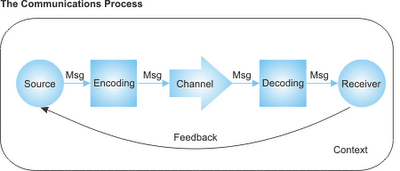Register refers to the perceived attitude and level of formality associated with a variety of language. The relationship between the writer's attitude and the variety chosen is very important in the study of written language. In face to face speech, the listener can easily interpret the attitude of the speaker by examining the speaker's tone of voice, facial expressions and overall body language. This is not possible in writing. The writer has to use speacialized features of discourse to convey or mask attitudes. It is then the reader's reponsibility to correctly interpret the writer's attitude, tone and level of formality.
Language Registers range on a scale from most formal to most informal. The five levels identified have been given specialized names by Linguists; frozen, formal, consultative, casual and intimate.
1. Frozen: This is where the use of language is fixed and relatively static. The national pledge, anthem, school creeds and The Lord's Prayer are examples of a frozen register. In essence it is language that does not require any feedback.
Example: "All visitors are invited to proceed upstairs immediately."
2. Formal: This describes language used in official and ceremonial settings. For example in court, in a business meeting, at a swearing in ceremony, in an interview or in a classroom etc. The language used in these settings is comparatively rigid and has a set, agreed upon vocabulary that is well documented. In other words, the language used is often of a standard variety.
Example: "Would everyone please proceed upstairs at once?"
3.Consultative: This describes language used for the purpose of seeking assistance as is suggested by the word 'consult'. It also describes the language used between a superior and subordinate. In both cases one person is deemed as more knowledgeable and having greater expertise and the other person is the beneficiary of such knowledge and expertise. The language dynamism between lawyer/client, doctor/patient, employer/employee and teacher/student are examples of this type of register.
Example: "Would you all please go upstairs right away?"
4. Casual/Informal: This describes language used between friends. It is often very relaxed and focused on just getting the information out. Slangs are quite often used in these instances.
Example: "Come on upstairs now."
5. Intimate: This is used to describe language used between persons who share a close relationship or bond. This register would take into account certain terms of endearment, slangs or expressions whose meaning is shared with a small subset of persons. For example lovers having special terms of endearment, mothers giving pet names to their children based on some character trait and best friends formulating slangs based on some shared past experience.
Example: "Come up nuh/ Unu naa go up?/ Unu naa forward?"


Thank you for this article. Very helpful, but my teacher was also talking about the private register (Talking to oneself)
ReplyDeleteThis article was very helpful. Thank you!!! It helped with my Communication Studies Internal Assessment.
ReplyDeletei need a sample of how to write the essays in paper 02 i need an eaxct example for the questions
ReplyDeleteThis truly helped. unlike those bogus sites. Tomorrow paper 02 will be explicit.
ReplyDeletePAPER 2 TODAY ! study study study
ReplyDeletewow! i am really ready for exam tomorrow
ReplyDeleteThis was very helpful. It really enlightened me my teacher also told me about a private register too
ReplyDeletethis was very helpful and on the point.....thank you!!!!!
ReplyDeletethis info is quite helpful and i learnt so much...ready for end of term exam
ReplyDeletethis article was very helpful tank you .
ReplyDeleteSooo helpful for an assignment I received...using this to aid in my preparation for exam as well!! :)
ReplyDeletethis was very helpful
ReplyDeleteThis helped alot thank you
ReplyDeletewas really helpful
ReplyDeleteIt's great 🤩🤩🤩 thank you
ReplyDeleteHow do you cite this page??
ReplyDeleteThank you for this essential information
ReplyDeleteThank you it help me to understand well but our teacher want us to gather sample title and author of language registers.
ReplyDelete